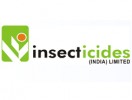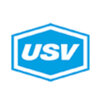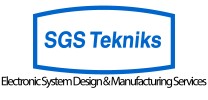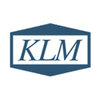Training Officer
50+ Training Officer Interview Questions and Answers


Q. What is TNA and how do you conduct it?
TNA stands for Training Needs Analysis. It is a process to identify gaps between current and desired employee skills and knowledge.
TNA helps in determining training requirements for individuals or groups.
It involves collecting data through surveys, interviews, and observations.
Analysis of the collected data helps in identifying skill gaps and training needs.
TNA can be conducted through various methods like questionnaires, focus groups, and performance evaluations.
Examples of ...read more


Q. How much time would you take to create a 30-slide presentation?
It depends on the content and purpose of the presentation, but I would estimate around 1-2 hours.
The time required to make a presentation depends on various factors such as the complexity of the content, the purpose of the presentation, the audience, and the level of detail required.
If the presentation requires extensive research and data analysis, it may take longer to prepare.
If the presentation is for a familiar topic and the slides are already prepared, it may take less t...read more
Training Officer Interview Questions and Answers for Freshers

Asked in Thinq Pharma Cro

Q. Types of flow, types of pumps, types of agitators, types of reactions.
Types of flow, pumps, agitators, and reactions are important in training officers.
Types of flow include laminar, turbulent, and transitional.
Types of pumps include centrifugal, positive displacement, and axial flow.
Types of agitators include paddle, turbine, and anchor.
Types of reactions include exothermic, endothermic, and reversible.

Asked in Insecticides India

Q. Abou the different types of pesticide and their mode of action ?
Pesticides are chemicals used to control pests. They can be classified into insecticides, herbicides, fungicides, and rodenticides, each with a specific mode of action.
Insecticides target insects by disrupting their nervous system or growth hormones. Example: Organophosphates.
Herbicides target plants by inhibiting specific enzymes involved in photosynthesis. Example: Glyphosate.
Fungicides target fungi by disrupting their cell membranes or interfering with their metabolism. Ex...read more

Asked in Unichem Laboratories

Q. What is your area of interest in biotechnology?
My interest area in biotechnology is genetic engineering.
I am fascinated by the potential of genetic engineering to modify and manipulate DNA.
I have a keen interest in studying how genetic engineering can be used to develop new treatments and therapies.
I am particularly interested in the ethical implications of genetic engineering and its impact on society.
I have experience working with CRISPR-Cas9 technology and have conducted research on gene editing in plants.
I am excited ...read more


Q. What are the 7 sutras of a village organization?
The 7 sutras of a village organization are principles for effective community management.
Sthapana - establishment of the organization
Sampatti - wealth management
Swarajya - self-governance
Samanvaya - coordination and cooperation
Sakshamata - capacity building
Sahabhagita - community participation
Samanata - equality and social justice
Training Officer Jobs




Asked in Nettur Technical Training Foundation

Q. Which types of lines are used in engineering drawings?
Different types of lines used in engineering drawing include object lines, hidden lines, center lines, dimension lines, and extension lines.
Object lines are thick, continuous lines used to outline the shape of an object.
Hidden lines are used to represent features that are not visible in the current view.
Center lines are used to indicate the center of a circle or arc.
Dimension lines show the size of an object or part.
Extension lines are used to indicate the points between whic...read more
Asked in Expert Pharmaceuticals

Q. What is Tablet ? Evaluation parameter of tablet ?
A tablet is a portable computing device that typically has a touchscreen display and is larger than a smartphone but smaller than a laptop.
A tablet is a type of mobile device that combines the functionality of a smartphone and a laptop.
It usually features a touchscreen display that allows users to interact with the device using their fingers or a stylus.
Tablets are designed to be portable and lightweight, making them convenient for on-the-go use.
They can be used for various p...read more
Share interview questions and help millions of jobseekers 🌟



Q. What are the tools for training?
Tools for training include visual aids, simulations, e-learning, lectures, and hands-on activities.
Visual aids such as PowerPoint presentations and videos
Simulations like role-playing exercises and case studies
E-learning modules and online courses
Lectures and classroom instruction
Hands-on activities like workshops and on-the-job training

Asked in Ciron Drugs & Pharmaceuticals

Q. Types of water use for pharma plants
Water is used in pharmaceutical plants for various purposes such as manufacturing, cleaning, and cooling.
Water is used in the production of pharmaceutical drugs.
It is used for cleaning equipment and facilities.
Water is also used for cooling purposes in pharmaceutical plants.
Different types of water are used based on the specific requirements, such as purified water, water for injection, and clean steam.
Water is an essential component in the manufacturing process of pharmaceut...read more

Asked in Insecticides India

Q. Abou the registration of pesticides ?
Pesticides must be registered with the appropriate regulatory agency before they can be sold or used.
Pesticides must undergo rigorous testing to ensure they are safe and effective.
Registration requirements vary by country and may include submitting data on toxicity, environmental impact, and efficacy.
Examples of regulatory agencies include the Environmental Protection Agency (EPA) in the United States and the European Food Safety Authority (EFSA) in the European Union.

Asked in Ciron Drugs & Pharmaceuticals

Q. Difference in biochem biotech nd micro
Biochem is the study of chemical processes in living organisms, biotech is the use of living organisms to develop products, and micro is the study of microorganisms.
Biochem focuses on the chemical processes in living organisms
Biotech uses living organisms to develop products such as medicines and genetically modified crops
Microbiology is the study of microorganisms such as bacteria and viruses
All three fields are related to the study of living organisms but have different foc...read more
Asked in Richind

Q. How can you obtain funds?
There are various ways to earn money, including employment, investments, freelancing, and entrepreneurship.
Employment: Working for a company or organization, e.g., a full-time job.
Investments: Putting money into stocks, bonds, or real estate to generate returns.
Freelancing: Offering services or skills on a project basis, e.g., graphic design or writing.
Entrepreneurship: Starting your own business to sell products or services.


Q. How many types of air lock.and etc.
There are two types of air locks - single-door and double-door.
Single-door air locks have one door and are used for low-risk areas.
Double-door air locks have two doors and are used for high-risk areas.
Air locks are used to prevent the entry of contaminants into clean areas.
They are commonly used in hospitals, laboratories, and clean rooms.
Air locks can also be used in spacecraft to prevent the escape of air and maintain pressure.

Asked in Unichem Laboratories

Q. Disintegration times of each type??
The disintegration times of each type are the time it takes for a substance to break down into smaller particles.
Disintegration time refers to the time it takes for a substance to disintegrate or break down into smaller particles.
It is an important factor to consider in various industries, such as pharmaceuticals, where the disintegration time of a tablet or capsule affects its effectiveness.
Different types of substances may have different disintegration times based on their ...read more

Asked in Lupin

Q. What is Fermenter and Fermantation?
A fermenter is a vessel used for fermentation, a metabolic process that produces chemical changes in organic substrates through the action of enzymes.
Fermenter is a container used for the fermentation process, typically in industries like food and beverage, pharmaceuticals, and biofuels.
Fermentation is a metabolic process where microorganisms like yeast or bacteria convert sugars into alcohol, gases, or organic acids.
Examples of fermenters include bioreactors used in brewing ...read more

Asked in Nettur Technical Training Foundation

Q. 1. Difference between PLC and microcontroller
PLC is a specialized computer for industrial control while microcontroller is a small computer on a single integrated circuit.
PLC is designed for industrial automation and control systems while microcontroller is used in various applications such as consumer electronics, automotive, and medical devices.
PLC has a fixed set of inputs and outputs while microcontroller can be programmed to interface with various sensors and actuators.
PLC is programmed using ladder logic or other ...read more

Asked in Ind-Swift Laboratories

Q. Disintegration time of different type of tablets.
Disintegration time varies for different types of tablets depending on their composition and formulation.
Disintegration time is the time taken for a tablet to break down into smaller particles in the presence of water or other fluids.
Tablets can be classified as immediate-release, extended-release, or delayed-release based on their disintegration time.
Immediate-release tablets typically disintegrate within 30 minutes, while extended-release tablets can take several hours to d...read more
Asked in Richind

Q. What do you do with this app?
This app is designed to enhance training and development through interactive modules and performance tracking.
Create engaging training modules that cater to different learning styles, such as visual, auditory, and kinesthetic.
Incorporate quizzes and assessments to evaluate knowledge retention and understanding, similar to platforms like Kahoot.
Utilize analytics to track user progress and identify areas for improvement, akin to how fitness apps monitor workouts.
Facilitate peer...read more

Asked in KLM Laboratories

Q. What is a GTIN number?
GTIN stands for Global Trade Item Number, a unique identifier for products used in global trade.
GTIN is a 14-digit number used to identify products in global trade
It is used to track inventory, sales, and shipments
GTIN can be found on product packaging or in barcodes
Examples of GTIN include UPC, EAN, and ISBN

Asked in Zydus Lifesciences

Q. What is a tablet?
A tablet is a portable computer that uses a touchscreen as its primary input device.
A tablet typically has a larger screen than a smartphone but is smaller than a laptop.
It can be used for browsing the internet, watching videos, playing games, and running apps.
Examples of popular tablets include the iPad, Samsung Galaxy Tab, and Microsoft Surface.
Tablets can be connected to the internet via Wi-Fi or cellular data.
They often have front and rear-facing cameras for taking photos...read more

Asked in Insecticides India

Q. Tell me about experimental design.
Experimental design is a structured approach to conducting experiments to test hypotheses and analyze results effectively.
Defines the research question clearly to guide the experiment.
Involves selecting appropriate variables: independent (manipulated) and dependent (measured).
Utilizes control groups to compare results against a baseline.
Randomization helps eliminate bias in assigning subjects to groups.
Example: In a drug trial, one group receives the drug (experimental), whil...read more

Asked in KLM Laboratories

Q. What is the procedure for withdrawing samples?
Samples can be withdrawn by following proper procedures and using appropriate equipment.
Identify the type of sample to be withdrawn
Select the appropriate equipment for withdrawal
Follow proper procedures for withdrawal to ensure accuracy and safety
Label the sample correctly for identification
Transport the sample to the appropriate location for testing or analysis

Asked in Genpact

Q. What is Reconciliation?
Reconciliation is the process of comparing two sets of records to ensure they are in agreement.
It involves identifying and resolving discrepancies between the two sets of records.
Reconciliation is commonly used in accounting to ensure that financial records are accurate.
It can also be used in other areas such as data management and conflict resolution.
Examples of reconciliation include bank statement reconciliation and inventory reconciliation.
Asked in 95 Finserv

Q. How do you handle a customer?
I handle customers by actively listening to their needs, providing excellent service, and resolving any issues they may have.
Listen attentively to the customer's concerns or requests
Provide personalized assistance and recommendations
Resolve any issues or complaints promptly and effectively
Maintain a positive and friendly attitude throughout the interaction
Follow up with the customer to ensure satisfaction

Asked in Nettur Technical Training Foundation

Q. Are you proficient in MS Excel?
Yes, I am proficient in MS Excel and can utilize its features for data analysis and reporting.
I can create and format spreadsheets for data organization.
I am skilled in using formulas and functions, such as VLOOKUP and SUMIF, to analyze data.
I can create pivot tables to summarize large datasets effectively.
I am familiar with data visualization tools like charts and graphs to present data clearly.
I can automate tasks using macros to improve efficiency.

Asked in Kalco Alu Systems

Q. What are measuring instruments
Measuring instruments are tools used to quantify, monitor, and record physical quantities such as length, weight, temperature, and time.
Measuring instruments are used to ensure accuracy and consistency in measurements.
Examples include rulers, thermometers, scales, stopwatches, and voltmeters.
They can be analog or digital, depending on the type of measurement being taken.
Calibration is important to ensure the accuracy of measuring instruments.
Measuring instruments are essentia...read more

Asked in Lupin

Q. What is the difference between sterilization and disinfection?
Sterilization completely eliminates all forms of microbial life, while disinfectants reduce the number of microbes on surfaces.
Sterilization kills all microorganisms, including bacteria, viruses, fungi, and spores.
Disinfectants only reduce the number of microbes on surfaces, but do not necessarily kill all of them.
Sterilization is typically achieved through methods like autoclaving, while disinfectants are commonly used for cleaning surfaces in healthcare settings.
Sterilizati...read more
Asked in Technoplast Packaging

Q. What is a control system?
A control system is a system that manages, commands, directs, or regulates the behavior of other devices or systems.
Control systems are used in various applications such as industrial automation, robotics, and aerospace.
They consist of components such as sensors, actuators, controllers, and feedback loops.
Examples include cruise control in cars, temperature control in HVAC systems, and autopilot in aircraft.

Asked in Ciron Drugs & Pharmaceuticals

Q. What is bacteria , fungi
Bacteria and fungi are microorganisms that can be found in various environments and have different roles in nature and human life.
Bacteria are single-celled organisms that can be found in soil, water, air, and living organisms. Some bacteria are harmful and can cause diseases, while others are beneficial and play important roles in digestion, fermentation, and nitrogen fixation.
Fungi are a diverse group of organisms that include yeasts, molds, and mushrooms. They can be found...read more
Interview Questions of Similar Designations
Interview Experiences of Popular Companies








Reviews
Interviews
Salaries
Users

















